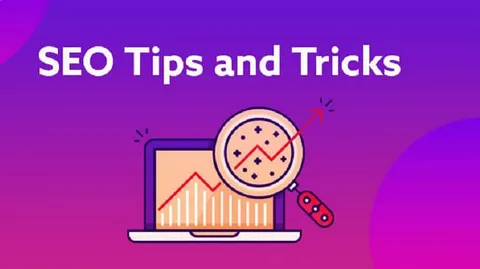Ain’t That Good News Messick? An In-Depth Exploration
In the fast-paced world of today news is always changing and people are eager to be informed on everything from global news to quirky local news. However, not every story is worthy of our attention. The expression “Ain’t That Good News Messick?“ is a slang term that perfectly describes what we often find certain headlines to be shocking in nature, unimportant, or just simple incomprehensible. It’s a humorous way to ask if it’s actually news or not?’ or ‘Is it worth my time or is it worth my time?’ This guide will take an in-depth look at why this statement resonates with so many and how it is reflected in the way we interact with news media in the present.
Why Do We Feel That Way About News?
The expression “Ain’t That Good News, Messick?” is often used to sarcastically mock in order to draw attention to the disillusionment of many people of traditional media sources. With constantly updated feeds, it’s not surprising that a lot of people are opting out or rethinking the worth of the content being published.
The Decline of Traditional News Sources
In the last few years, traditional media outlets have had to fight to remain relevant in the age of digital media. Here are a few of the reasons for this:
- Over-Saturation of Content News updates are frequent. With the constant stream of information from social media sites blogs, websites, and other platforms the volume of content often makes it difficult to determine the most valuable information.
- Sensationalism: Today’s headlines typically concentrate on attracting attention rather than offering substance. This has resulted in the rise of headlines with a sensational tone which may not always be true to the story.
- The loss of credibility There are many who question the reliability of news outlets, particularly because of the widespread spread of misinformation and bias. The result is a severe distrust of traditional news sources.
The Role of “Ain’t That Good News Messick? “
This expression, usually employed in a joke, is a reflection of the collective feelings that a lot of people experience when confronted with irrelevant or false information. It’s a term used to express anger at the condition of news media, a feeling shared by millions of people around the world.
How Social Media Affects Our News Consumption
In this digital age it’s no longer just about traditional media nowadays. Twitter, Facebook, Instagram and TikTok all influence the way we consume and sort through information. However, these platforms come with their own unique set of issues.
The Rise of Citizen Journalism
- User-generated Content Social media platforms permit anyone with a mobile device to be an “journalist,” often bypassing traditional news media. Although this has helped to make information more accessible but it also has led to an increase in fake or biased information.
- Breaking News Coverage: Social media allows news to circulate more quickly than ever before, but this is an enigma. False information can quickly spread creating panic and confusion before the an accurate context is given.
The Algorithmic Influence
- Echo Chambers: Social media algorithms are created to provide us with content like what we’ve participated in, which may result in “echo chambers” where we only get news that supports our beliefs.
- Attention Economy and Clickbait The algorithms prioritize content that attracts clicks the sensationalized headlines and eye-catching stories are able to dominate our news feeds. This can make it difficult for news that is nuanced and meaningful to make it through.
Tackling the Messick of Modern News: How to Stay Informed
As we are aware of the issues posed by modern media consumption, how do we cut through the noise and concentrate on the most important things? Here are some ways to better manage the amount of news we consume
- Curate Your News Sources
A way to be able to stay clear of the overwhelming amount with information is to select your sources of news carefully. If you do this you are in control of your information consumption and be certain of the quality of the information you get.
- Use Credible Outlets: Go for established media outlets that have an excellent reputation for accuracy and balanced coverage. A few reliable sources include BBC, Reuters, and The Associated Press.
- Utilize News Aggregators The platforms such as Google News or Flipboard allow you to alter your news feed according to your preferences, giving you the most relevant and well-curated experience.
- Join Newsletters Subscribe to Newsletters: up for either weekly or daily newsletters from reliable sources to receive the latest information without having to scroll for hours.
- Limit Your Consumption
There is no requirement to go through every article or view every news report. Making a conscious choice about how often you read and consume news can greatly lessen the feeling of feeling overwhelmed and boost your mental health.
- Establish Time Limits Set certain times throughout the day to read the news, and resist the temptation to check your feeds continuously.
- Engage in Mindful Consumption: Focus on reading and watching video clips that give you pleasure. Beware of mindlessly scrolling through sensational headlines.
- Fact-Check Before Sharing
One of the major issues in the current world of news consumption is the spreading of misinformation. Before sharing information with anyone else make sure you verify the information. This method of responsible sharing news helps to establish trust and credibility within your social circle.
- Use websites that are fact-checking: Websites such as Snopes, PolitiFact, and FactCheck.org can assist in verifying the legitimacy to the facts you come across.
- Search for primary sources: Always verify whether a reliable, primary source supports the information. Do not spread rumours or publish content that is not sourced properly.
The Impact of News on Mental Health
It’s no secret that watching news that is not of the right kind can affect our mental well-being. From anxiety-related feelings to political exhaustion The impact of the news on our mental wellbeing is significant.
The Stress of Constant Alerts
We are often bombarded by push notifications or social media notifications that warn us about breaking news. This can cause a feeling of stress or urgency even when the news doesn’t really matter for our life.
- Reduce anxiety by limiting notifications Disable non-essential push notifications in order to avoid continuous interruptions. Keep your eyes on the news that really is important to you.
- Get rid of digital clutter Take a break from your gadgets for a few hours, or even for a full day. This can help reduce mental distractions and allows for rest and relaxation.
The Role of Bias and Polarization
Another issue in the coverage is an massive amount of biased news coverage. Be it political bias or obsessional reporting the manner in which news is presented can cause the polarization and division.
- Find balanced perspectives: Read articles from a variety of perspectives to gain a better understanding of the subject.
- Participate in civil discussions: Avoid argument and concentrate on a respectful, open-minded conversation when discussing news.
How to Manage Your Newsfeed: A Step-by-Step Guide
The ability to manage your newsfeed effectively is vital to ease stress and remaining informed. This guide will help you create the most efficient way to consume news:
Step 1: Identify Your Interests
The first step is to determine the kind of news you’d like to concentrate on. Are you inclined to read about global events local news, or specific topics such as sports or technology? Knowing your interests can assist you in arranging your feed more effectively.
Step 2: Use News Aggregators and Curated Feeds
A lot of platforms let you filter and personalize your news feed according to particular preferences. Here are a few alternatives to think about:
- Google News: It allows you to customize your feed to suit your preferences.
- Flipboard You can personalize your feeds according to the subjects that you’re following, resulting in more customized experience.
- Apple News: It provides an curated feed of news according to your interests and reading habits.
Step 3. Limit Distractions by using Browser Extensions
Browser extensions such as uBlock Origin and AdBlock Plus can be used to block untrusted websites or content, making sure that only the latest information reaches your computer.
Frequently Asked Questions
- What’s the meaning behind “Ain’t That Good News Messick? “
This expression expresses humor or sarcasm when confronted by news that is deemed to be trivial or insignificant. It’s a funny way of responding to the awe-inspiring nature of modern news.
- How do I be sure to stay clear of fake information?
Be sure to verify facts before sharing information to ensure that it is not fake news. trust reliable sources. Utilize fact-checking websites to ensure that the primary sources support the news stories.
- Do you prefer to get news from social media, or via traditional channels?
It’s all about your personal preferences. Traditional news sources usually offer more balanced and reliable news While social media provides instant updates, but are full of misinformation. It is recommended to read information from both, but with a sense of discernment.
Final Thoughts: Redefining Your News Experience
“Ain’t That Good News Messick?” is not just an ironic phrase. It is a reflection of many people’s discontents with the current media environment. With the appropriate tools, strategies, and a thoughtful method, it is possible to regain control of your media feed and enjoy a more satisfying information consumption experience. You can keep up-to-date without feeling overwhelmed by sifting through your sources, limiting distractions and prioritizing your mental wellbeing.




